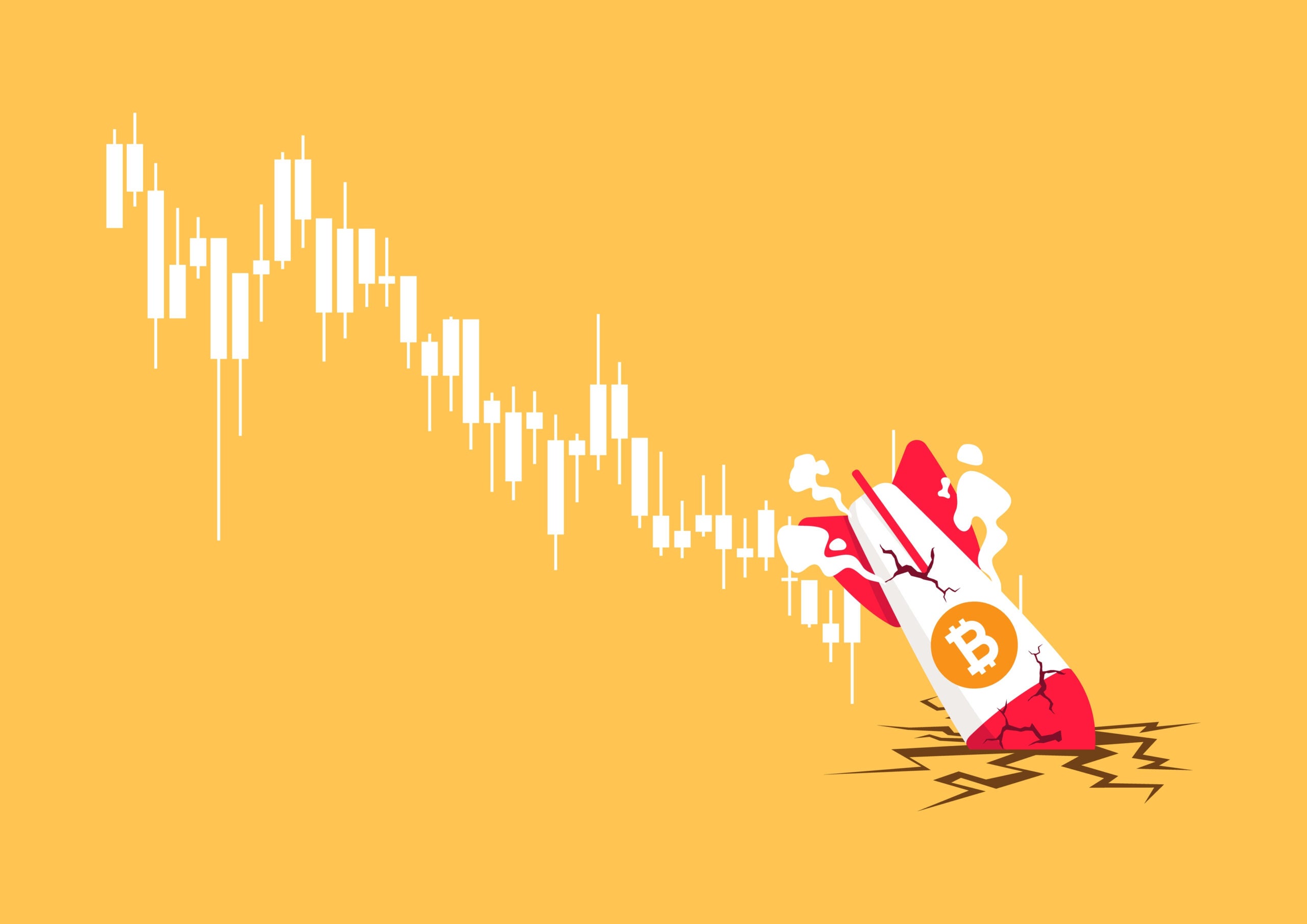
It’s been a bloody week for cryptocurrencies. Bitcoin has fallen below £21,000 for the first time in 18 months, exchanges like Binance and Celsius have halted withdrawals, and the industry has been hit by a string of mass-layoffs. However, industry stakeholders believe the crypto crash can end up being a good thing in the long run.
“This correction is absolutely necessary for the overall health of the industry as a whole,” Alan Vey, the founder and CEO of blockchain network provider Aventus, tells Verdict. “Think of it like medicine: hard to swallow in the short term, but good for you in the long term. It will weed out the projects with poor fundamentals, who were relying on hype among the media and an inflated market to carry them [along.]”
Other industry stakeholders Verdict has spoken with share the sentiment. They believe a bloodbath is coming for the industry, but that the survivors of the crypto crash will come out stronger than ever.
“One positive of a bear market is that it does weed out projects that can hide their shortcomings in a bull market,” Jawad Ashraf, CEO and co-founder of non-fungible token (NFT) marketplace Terra Virtua, tells Verdict. “Although we don’t want to see anyone lose money, ultimately it’s a positive for the industry to lose projects that do not have a sustainable and long-term future.”
The crypto crash is the end of the Covid-19 boom
In many ways, the crypto crash is the hangover from the bullish party mode the industry has enjoyed over the past two years. Digital assets like bitcoin and ether as well as a collection of memecoins enjoyed surging valuations.
Traders couldn’t get enough of them. In November 2021, bitcoin reached an all-time high of over $68,000. Ethereum, the world’s second largest cryptocurrency reached a record valuation of $4,800 around the same time.
How well do you really know your competitors?
Access the most comprehensive Company Profiles on the market, powered by GlobalData. Save hours of research. Gain competitive edge.

Thank you!
Your download email will arrive shortly
Not ready to buy yet? Download a free sample
We are confident about the unique quality of our Company Profiles. However, we want you to make the most beneficial decision for your business, so we offer a free sample that you can download by submitting the below form
By GlobalDataCompanies facilitating the trade with these digital assets got in on the action. Cryptocurrency exchange Coinbase went public in April 2021 and almost achieved a $100bn market cap on its first day of trading. Rival Crypto.com made waves when it bought the Staples Arena, home to the LA Lakers, at the end of the year.
Last year’s NFT craze is also a symptom of the renewed interest blockchain technology enjoyed over the course of the pandemic.
A plethora of financial service providers tapped into market amidst the bull market. Payments processor PayPal, UK neobank Revolut and US stocktrading app Robinhood were just some of the companies that announced cryptocurrency services. Even holdouts like JP Morgan, who’s CEO Jamie Dimon has labelled bitcoin as a fraud, launched similar services.
Investment into industry initiatives spiked during the same period. Venture capital backers injected $3.3bn into the industry across 532 deals in 2020, according to data from research and analytics firm GlobalData. Those numbers jumped to $26.4bn raised across 1,010 deals in 2021. So far in in 2022, VCs has injected $11.9bn into the industry across 613 deals.
Crypto crash in three, two, one...
However, a cold shower awaited anyone daring to feel celebratory at the end of 2021. A combination of the threat of tighter regulation, China's ban on cryptocurrencies, Russia's invasion of Ukraine, rising inflation and plummeting productivity has tainted the prospects of the industry.
The volatility shaved off over $1tn from the crypto market's value within the first weeks of 2022. For anyone keeping score, that's a more dramatic drop than what was experienced during the market implosion that precipitated the Great Depression in the 1920s.
At the start, some blockchain evangelists brushed off the market slump with equivocations about fear-mongering from the powers-that-be. Despite their bullishness, the crypto winter Verdict first warned about in February has since become a reality.
"We are currently experiencing the biggest crypto crash in history." Louis Schoeman, managing director at broker comparison site Forex Suggest, tells Verdict.
Coinbase is currently trading at a $11bn market cap. The exchange has also just announced an 18% cut of its workforce. Crypto.com has announced that it will lay off 260 employees.
The valuations of the world's biggest cryptocurrencies have continued to slide. Stablecoins like TerraUSD have dramatically imploded in front of a global audience. And, like we mentioned earlier, exchanges have postponed withdrawals.
"The current market downturn signals further pain for crypto markets following the extended period of price consolidation since November, which has led to almost $2tn being wiped out from the total industry market cap," Sean Dickens, crypto analysts at exchange Kinesis Money, tells Verdict.
"This downwards price action combined with minimal bullish catalysts and a spate of large-scale events with Terra and now Celsius has sent the markets into the latest ‘crypto spiral.' Prices could continue to draw down further if market sentiment – which has significantly affected market-wide investor confidence - remains at current levels."
What now?
The crypto crash is here and it doesn't show any sign of stopping. Nevertheless, the people at the the forefront of the sector continues to be optimistic about the future of the digital assets.
“Despite the current market volatility, we believe cryptocurrencies will play a huge role in the next decade – for everyday investors and for financial services institutions,” Jean-Baptiste Graftieaux, the new CEO of exchange Bitstamp, tells Verdict. “But moments like this do show why it is crucial that robust regulations are developed to deliver increased stability to the crypto space.
Others point to the overarching macro conditions, arguing that the slump isn't due to the crypto industry per se.
"I think we are heading into uncertainty and a heightened amount of volatility but ultimately this is not directly crypto-focused," Samuel Leach, director of trading venture Samuel and Co Trading, tells Verdict. "The global economy is under stress and this is what is ultimately leading to the selloff. The economic outlook over the next six months looks bleak, with high inflation, rising interest rates, the war in Ukraine and global supply chain issues. In these times investors usually exit risk-on assets such as tech stocks and cryptocurrencies and that Is exactly what we are seeing."
Leach suggests that there is still money to be made in the market, but that the timing of trades vital.
"Most retail investors will typically go for the buy the dip approach and unfortunately if timed wrong will be catching a falling knife," he says.
GlobalData is the parent company of Verdict and its sister publications.







